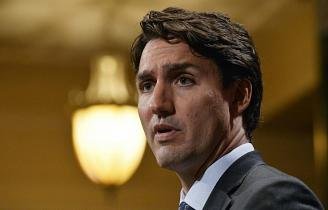Federal Budget 2016: Alternative plan Proposes lifting 1.1 million Canadians out of Poverty, Fighting Climate Change
Ahead of the Trudeau government’s first budget on March 22, a leading left-leaning think-tank proposed a bold alternative federal plan.
The Canadian Centre for Policy Alternatives (CCPA)’s Alternative Federal Budget would empower Canada to fight climate change, “lift 1.1 million Canadians out of poverty, reduce income inequality, boost economic growth, and, at its peak, result in 520,000 new jobs, bringing Canada’s unemployment rate to 6.0%.”
Had CCPA senior economist David Macdonald been in federal finance minister Bill Morneau’s position today, Canadians would likely see a progressive budget that:
- introduces a national carbon tax at $30 a tonne with a refund for low-income families;
- fosters a highly skilled workforce by eliminating university tuition fees;
- tackles the ongoing crisis for First Nations housing, drinking water, and education;
- enacts a comprehensive federal poverty reduction plan that would cut seniors’ poverty in half and cut child poverty by a quarter;
- integrates long-term care, home care, and pharmacare into Canada’s publicly funded health care system;
- repairs our cities by providing $7 billion a year for municipal infrastructure renewal; and
- meets the needs of today’s families by investing in affordable child care and enhancing parental leave.
The AFB plan is a radical rebuke of Stephen Harper. It invites us to engage in a national conversation on the key governance issues, including: the federal deficit, Canada’s unfair tax system, government’s role in the economy, and growing income inequality, which is “killing thousands of Canadians every year.”
The Harper Conservatives were obsessed with balancing the budget and cutting spending on essential services.
The AFB posits that the Conservatives’ madness resulted in “a measurable withdrawal of public services and support programs upon which many rely.” It ads that today, “total federal spending as a share of the economy is the lowest it’s been since before the Second World War.”
Deficits, deficits, deficits
The AFB plan challenges our perennial fear of federal deficits. Large deficit spending isn’t necessarily a bad thing.
“We shouldn’t let the idea of federal deficits, even relatively large ones, scare us off making much needed investments in Canada. Every dollar of a federal deficit puts a surplus dollar in the pocket of the provinces, Canadian families or businesses,” said Macdonald. “The Alternative Federal Budget illustrates how well structured spending more than makes up for any additional debt through a stronger economy.”
During the 2015 federal election campaign, the Liberals cautiously promised annual deficits hovering around $10 billion. Now there is overwhelming consensus that Canada will need to go big on deficit spending in the next little while.
In January, the First National Bank estimated a $50 billion deficit over the next two fiscal years. Some economists now predict a deficit as high $30 billion for 2017. The AFB predicts a deficit $29.2 billion for 2016-17. Even suggests that the government could “take on a $37.9 billion deficit and still maintain Canada’s debt-to-GDP ratio.”
The case for tax fairness
Under the Harper government, Canada’s corporate tax rates decreased from about 21 per cent in 2006 to the current 15 per cent. Rich Canadians and even banks exploited loopholes in the tax system to avoid paying their fair share of taxes. Back in 2013, the tax fairness advocacy group, Canadians for Tax Fairness, told Parliament that the increasing use of tax havens by financial institutions is costing Canadians an estimated $7.8 billion annually.
The CCPA urges the Liberals to hike corporate taxes and plug the tax loopholes.
“We need to restore fairness and progressivity to our tax system by closing unfair and ineffective tax loopholes and aggressively fighting tax evasion using tax havens, while at the same time raising tax rates on upper incomes,” the AFB says.
Climate change
Harper was often seen as a member of the global climate criminals’ club – leaders whose counties made major contributions to climate change while they’re unwilling to act. Canada received numerous “Fossil of the Day” awards, including the “Lifetime Underachievement Award” and “Colossal Fossil Award,” for stonewalling global climate negotiations.
Back home, the Conservatives gutted environmental protections through Bill C-38. They rubber-stamped fossil fuel infrastructure. Last year, the Guardian (UK) reported that the anti-evidence Harper government had “spent several million dollars on a tar sands advocacy fund as its push to export the oil faltered.”
Joining last weekend’s Earth Hour celebrations, Prime Minister Justin Trudeau hinted that the 2016 budget will include some real progressive climate action.
First Nations
During an exchange with NDP Leader Tom Mulcair in Parliament on Monday, Trudeau assured us that his maiden budget would unleash “historic investments in First Nations and indigenous communities.”
The Liberals’ plan will be judged against their promise of genuine reconciliation with First Nations. The Liberals have promised to implement all of the Truth and Reconciliation Commission’s recent 94 calls to action, fix the perennial water crisis bedeviling numerous First Nation communities, and eliminate the bizarre annual 2 per cent cap on First Nations education funding.
“The Alternative Federal Budget proves we can fight climate change and create jobs at the same time, and shows how we can reduce poverty through responsible economic growth,” said Macdonald.
SPECIAL APPEAL: Please empower The Canadian Progressive and help us publish more stories like this by supporting this GoFundMe Fund-raising Initiative. Thank you!
Obert Madondo is an Ottawa-based progressive blogger, and the founder and editor of The Canadian Progressive. Follow him on Twitter: @Obiemad
Read More..
Comments
There are 0 comments on this post













